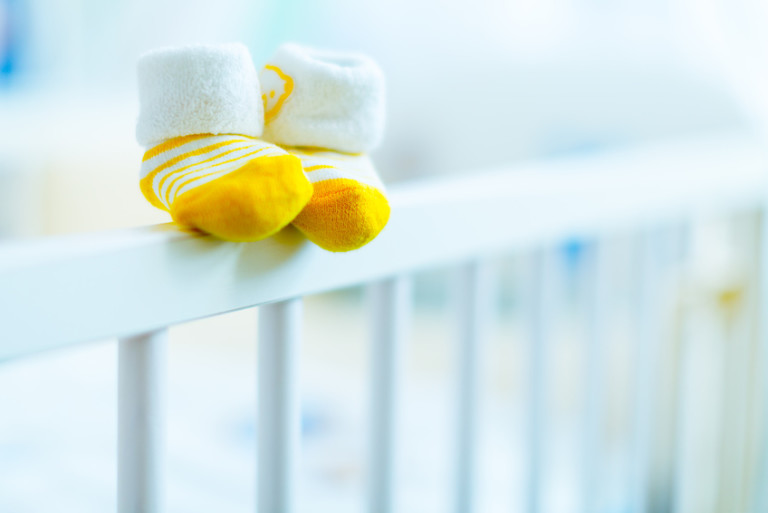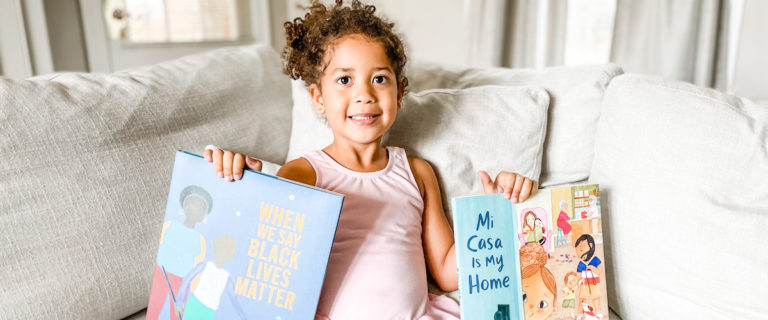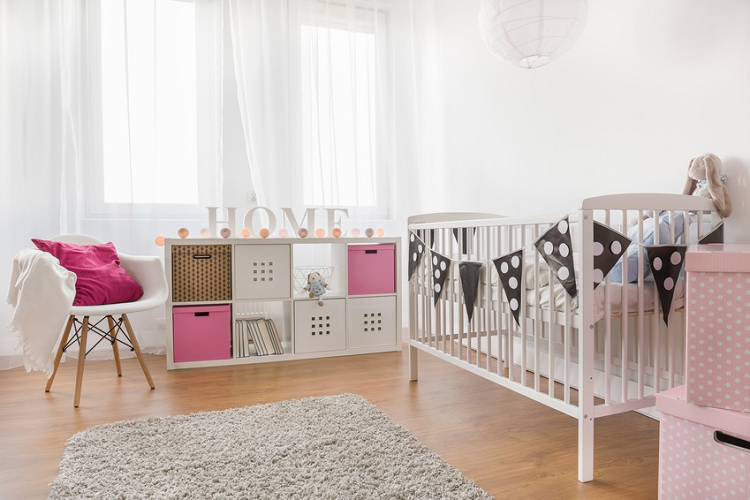Postpartum depression comes in so many different forms. Here’s how to support a mom going through postpartum depression in the best way possible.
This post may contain affiliate links.

Welcome to my “How to Support a Mom” series. It all started with one post called “How to Support a Mom Struggling in Public,” that gained so much love and attention that I turned it into a whole series! Knowing that we could all do a better job of supporting one another, but sometimes we don’t know how, you will find new content in this series every month.
How to Support a Mom With Postpartum Depression
Postpartum depression has been around forever, but is only becoming something that is talked about openly in our society in recent years. It quite literally can take over a new moms life and if untreated, can be incredibly damaging. Postpartum depression has become so common is our society that the first FDA approved treatment, called Zulresso will soon be readily available. Despite all the progress that has been made, talking about it can still be a little bit taboo, and I want to do my part to help break through that barrier with you all today.
Struggling with depression and anxiety myself throughout my life, I was really nervous about dealing with this after both babies. When I was pregnant with Branden, I went on a safe to have during pregnancy anti-depressant as a preventative measure, but it ended up pushing my anxiety through the roof, so I stopped taking it and was fine postpartum. With Blake, I struggled more with postpartum anxiety, which has lead me to seek better treatment for anxiety in my everyday life. It’s hard. None of it easy. Everyday is different. And I know that we can all do a better job of helping one another out through these difficult times.
Advice From Mamas Who Have Been There

“I personally suffered from postpartum depression and anxiety after my second daughter was born. Having had firsthand experience as a nurse working with women suffering from perinatal mood and anxiety disorders (which includes postpartum depression and anxiety), I knew immediately something was wrong when I found myself not wanting to hold or look at my daughter a few weeks after delivery. To be honest, it was a very bizarre experience to logically know that I was experiencing postpartum depression/anxiety, but still feel the way that I was feeling. I couldn’t help it. I felt helpless and started having panic attacks on a regular basis. It affected my ability to be a mother to my oldest child, my ability to be a wife, and the ability to be successful as a grad student and nurse. I so desperately wanted to be that perfect mother who could juggle it all but I simply could not and knew I needed help.
Luckily, being in the medical field, I knew the right resources to take advantage of to help me with my symptoms and to adjust to being a new mother of two. However, one of the biggest things that helped me during this experience outside of clinical resources, was having a friend who had also experienced postpartum depression and struggles with motherhood. She was very honest with me about the fact that somedays despite loving her children more than life itself, she didn’t feel like she had the strength to be a good a mother and wanted to give up.
I think her honesty really helped me to feel less alone and realize that motherhood is not always rainbows and unicorns. I think a lot of mothers (myself included) often feel afraid to admit they are struggling and or having symptoms because there is so much pressure in society and on social media to be that “perfect mother” who can do it all and look perfect while doing it. I have seen countless social media accounts that portray motherhood as being blissful and effortless. I think it’s very easy nowadays to get sucked into this unrealistic facade and feel bad and or less than about your personal struggles with being a mom. This was definitely the case for me and it for sure compounded my symptoms. However my friend’s honest advice and experiences coupled with clinical therapy really helped me see through those social media posts of that perfectly thin made up mother of four with her immaculately dressed children smiling happily at the camera. THIS IS NOT REALITY PEOPLE.
Perinatal mood and anxiety disorders currently affects one out of every seven women. That’s almost one million women annually! Those perfect mothers on instagram are either the outliers to this statistic or they are concealing struggles of their own. Therefore, my biggest advice to mothers who may know someone who is suffering from postpartum depression/anxiety would be to open up to them about your own struggles. Even if you personally have not suffered from postpartum depression, you can still be honest with them about your experiences and rough days as a mother because we all have them! Be real, be honest, and be available to them whenever they reach out for advice or support. It could really make a huge difference in someone’s recovery. It sure did with mine!” – Shelley Jones, CleanGreenBeing

“Check in with them, pray for them, and with them…affirm their feelings and let them know you‘re not leaving them. Of course this is along with the Medical attention they should already be receiving. If not, helping them to get it!” – Denise Sobuta Kerr
“Visit them and when you do don’t make it about the baby make it about them. Acknowledge their needs, encourage them that it’s ok and, remind them what they are feeling is real. Let them take a long hot shower and relax. Go for a walk with them, listen and don’t judge. Watch for signs so that if needed you can help them get medical attention. Go to Dr. appts with them and most of all pray for them and with them. I always believe we need to help how someone needs us to help. It’s not about us and our worry but helping them completely and unselfishly. When it’s someone we care about it’s easy to want them better to lift our burden not theirs. So focusing on them is so important.” – Pamela Pinchbeck
Looking for more mom support post? You’ll love these!
- How to Stay Friends With a Non Mom Friend
- How to Find Support Groups For Moms
- Why We Need to Be Lifting Each Other Up
- Why I Stopped Trying to Be Supermom
- 5 Things to Consider Before You Plan a Med Free Delivery
- Wardrobe Staples For Your Postpartum Body
I truly hope that this information helps you all, and the mamas that you are supporting! It’s so important that we are there for the moms in our lives, and pick up on cues showing that they might need some extra help – even if they are forthcoming about it. Love you all!
XOXO,
Allison









